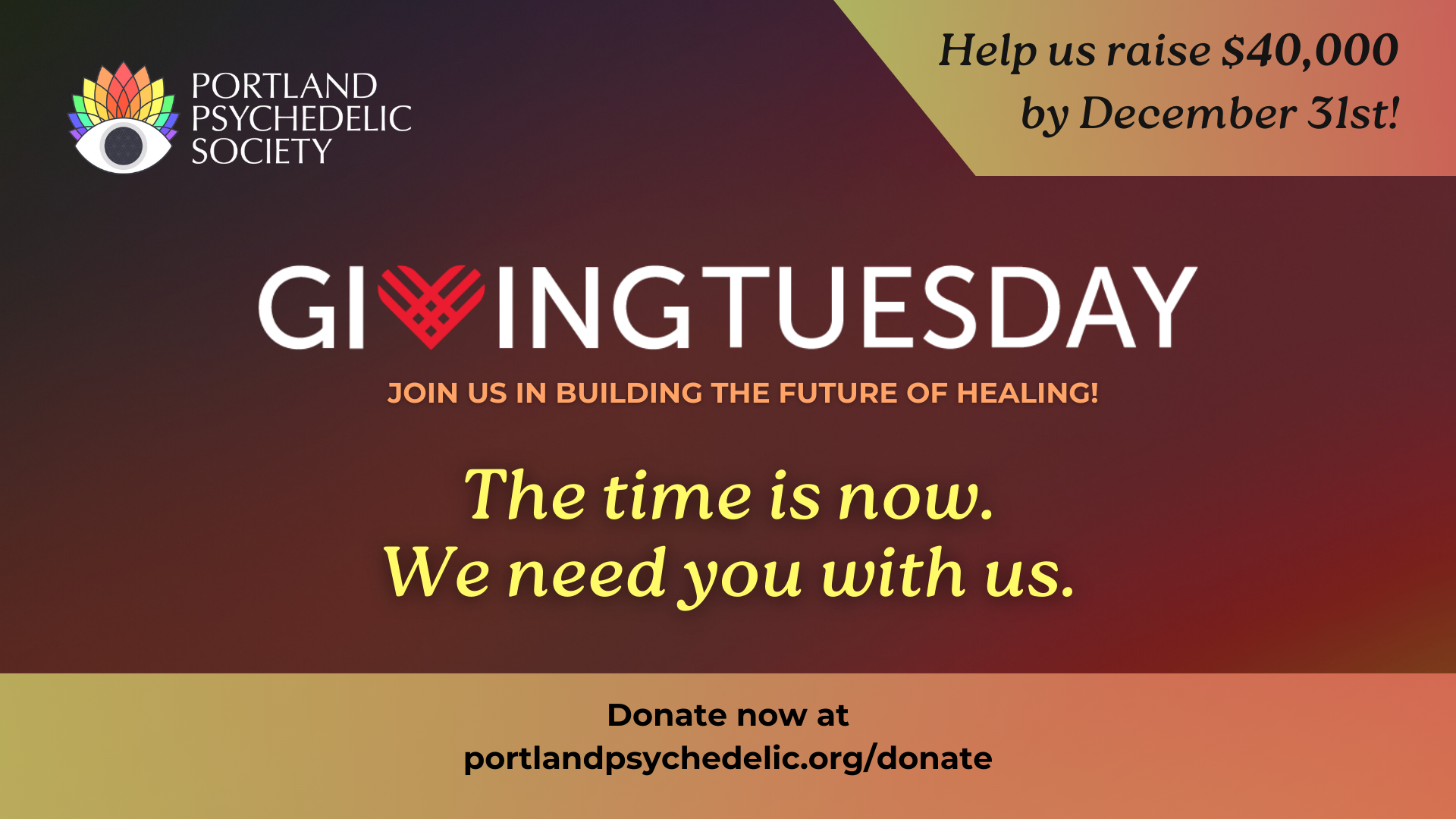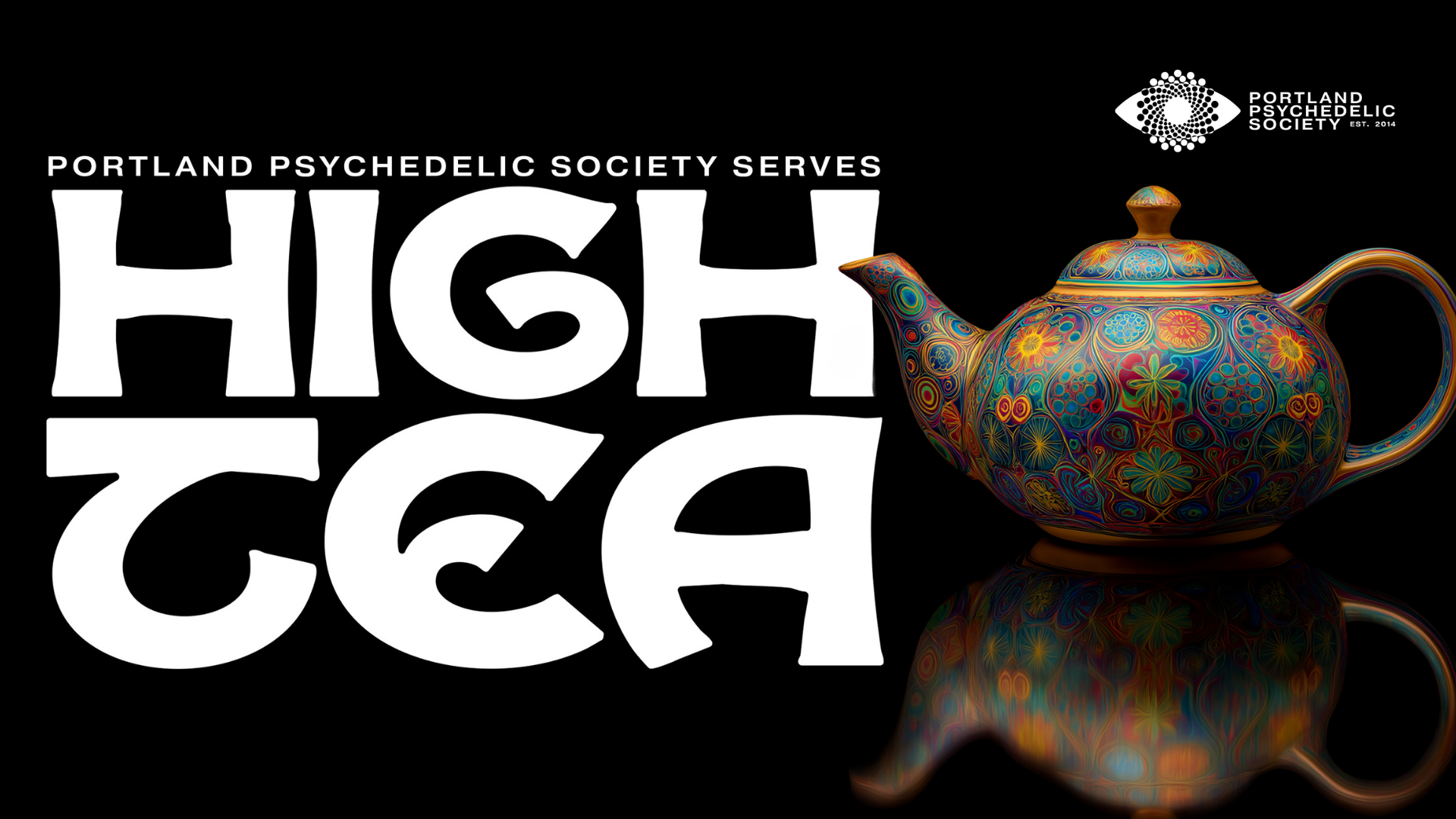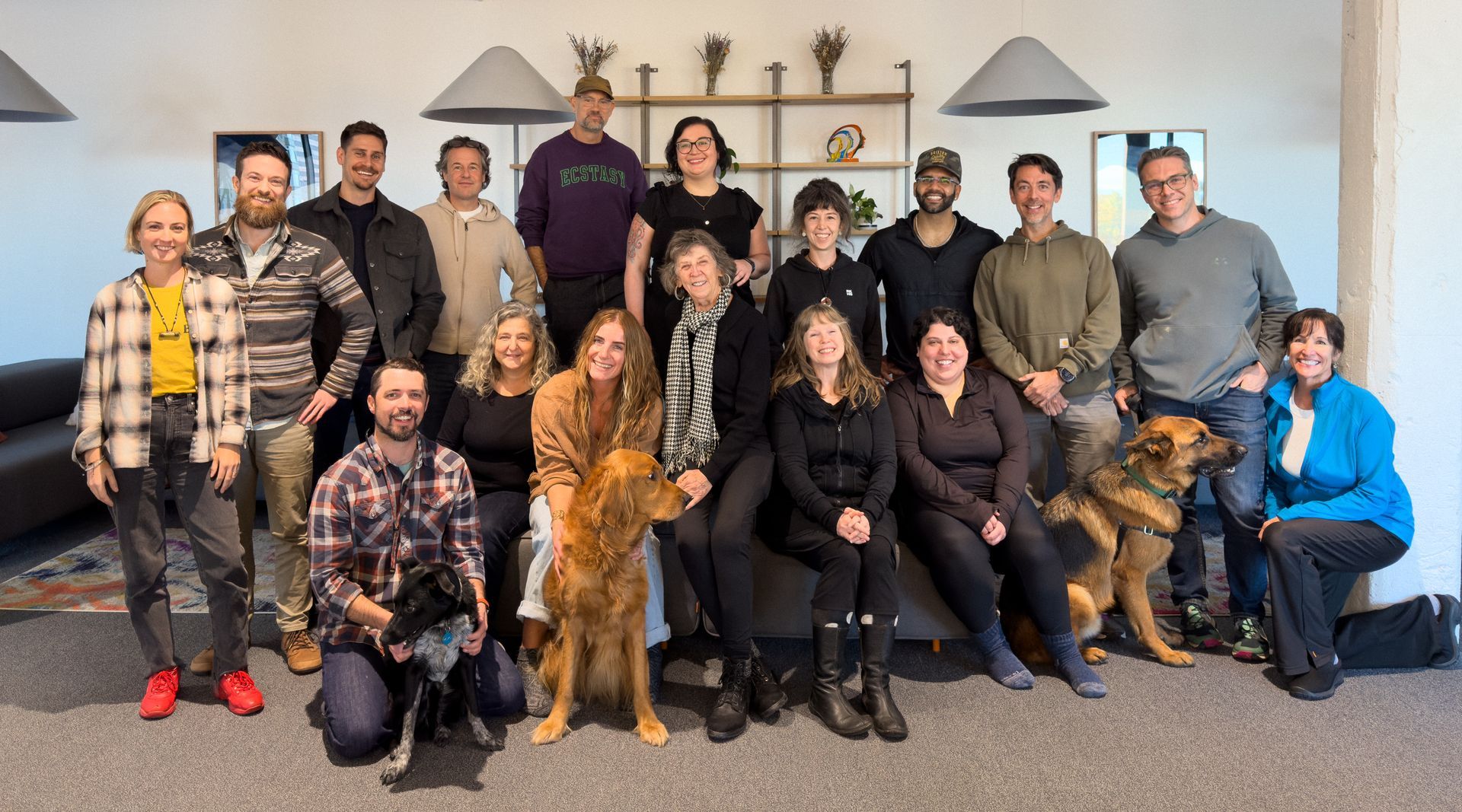Psychedelic Free Will?
Disclaimer: All opinions are the author's own and do not represent the views of Portland Psychedelic Society.
Recently, I had a psychedelic therapy session with the help of a therapist/guide.
The guide and then I too, referred to the experience as an intentional journey, a term I had only recently encountered. The experience took place at my guide’s private home and I took ½ dose of MDMA followed by a fairly large dose of psilocybin (Omni Blue Wave or Enigma strain) followed by two subsequent booster doses. Like many, I had used psychedelic substances quite a lot in my youth for recreational purposes and actually gained a lot of insights from those experiences. But this trip was purposeful and intentional, to deal with some trauma from adolescence that was still haunting me and also address lifelong issues with poor self-esteem. The guide and I followed all of the common-sense preparation practices and I felt that I mostly achieved my goals. When I say that it was an intentional journey, I mean that I thought about it for a long time (several years), thought about what I wanted to achieve with experience, and set about to find a trusted guide and follow through on my intention. I feel like this was a conscious decision.
But Stanford neurobiologist Robert Sapolsky, author of, Determined: A Science of Life Without Free Will says virtually all human behavior is far beyond our conscious control. We cannot control our behavior, in the same way, that we cannot control, for example, our heartbeat, or when our cells divide and grow. Sapolsky would argue that the illusion of free will arises from our inability to see all the complex factors influencing our decisions. He would say that our hormones, childhood, biology, and the specific details of our lives come together to produce behaviors that we feel we are choosing.
Sapolsky posits a thought experiment: We observe a man pull the trigger of a gun. We can infer that the index finger muscles acted on the trigger because it was stimulated by a neuron which in turn was acted upon by the neuron next to it, which was acted upon by the neuron adjacent, etc etc. And here is where Sapolsky makes his stand: “Show me a neuron (or brain) whose generation of behavior is independent of the sum of its biological past, and for the purposes of this book, you’ve demonstrated free will.”
To turn this idea inside out, we would have a difficult time trying to show that any brain activity has not been tied to or influenced by the entire life of the person that came before that moment. This would seem to be an easier concept to swallow than “we have no free will,” yet they are very close to each other.
Sapolsky’s view is very much a minority opinion and hard for most of us to wrap our heads around. Most scientists and philosophers believe that we have at least some free
will. However, more researchers are acknowledging that the claims that he makes have some validity and there is other research pointing to the lack of agency in our conscious minds. In experiments that have been repeated and verified, researchers using fMRI brain scans were able to predict participants' decisions up to seven seconds before the participants made the decisions. You thought that you just chose chocolate ice cream rather than strawberry but it turns out your “choice” might have been a neurochemical afterthought of the decision your subconscious mind made for you. There’s a method to this madness, our brains likely take over so that we are not inundated with thousands of choices daily.
Critics (about 60% of philosophers surveyed) would say yes, of course, we have free will, just as we all feel intuitively that we are making our way through our day, one decision at a time. Others (including this author) think the “truth” is likely somewhere in the middle. We have a deterministic pathway to a great degree directed by our past but still, there is room for individual preferences. Sapolsky would say of course we make individual decisions on a day-to-day basis but the likelihood that we will choose the paths we do is probably quite predictable given our backgrounds, demographics, biology, education, etc.

So, while it’s easy to accept the science perhaps, and understand the experiments that show that our unconscious mind reacts before our conscious mind does – that is to say, it does sound like you could make a good argument that there’s no free will. Yet it’s still hard for each of us to shake the truth of our lived experience, where we feel like we are in control of what happens to us on any given day and time.
Was my recent psychedelic journey “intentional” or could it have been predicted from the life that preceded it? Did I make a deliberate decision to write this blog post? Sapolsky would say that many factors beyond my conscious awareness brought me to this act. Perhaps so; I have a background in writing, a history of volunteering with non-profit organizations, and have been involved with psychedelics, one way or another for many years. I also have an interest in neuroscience. With all of these correlations, it’s hard to say how much I actually “chose” to write this entry. And did you choose to read this post or was it perhaps your subconscious that decided for you? 🙂
***
Revell, Timothy. “Why Free Will Doesn’t Exist, according to Robert Sapolsky.” New Scientist. Oct. 18, 2023 https://www.newscientist.com/article/2398369-why-free-will-doesnt-exist-according-to-robert-sapolsky/
Reese, Hope. “Robert Sapolsky Doesn’t Believe in Free Will. (But Feel Free to Disagree.)” New York Times. Oct. 23, 2023. https://www.nytimes.com/2023/10/16/science/free-will-sapolsky.html?auth=login-google1tap&login=google1tap
Chun Siong Soon, Marcel Brass, Hans-Jochen Heinze & John-Dylan Haynes, (2008). Unconscious determinants of free decisions in the human brain, Nature Neuroscience, April 13.
Chun Siong Soon, Anna Hanxi He, Stefan Bode, John-Dylan Haynes, (2013). Decoding abstract intentions, Proceedings of the National Academy of Sciences, March.
share
RECENT ARTICLES



